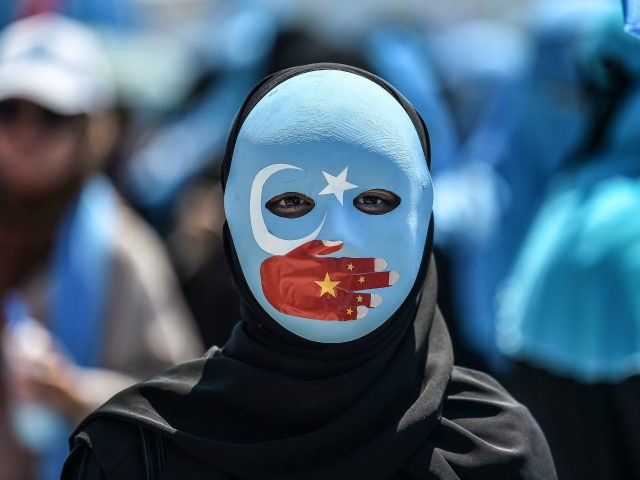Pakistan on Thursday defended its close ally China’s internment of up to one million Muslim Uighurs in re-education camps where detainees are forced to renounce their religion in favor of communism, saying foreign news outlets have “sensationalized” the issue.
“Some section of foreign media are trying to sensationalize the matter by spreading false information,” Mohammad Faisal, a spokesman for Pakistan’s ministry of foreign affairs, told reporters on Thursday, the Agence France-Presse (AFP) agency reported.
“The Chinese authorities have also offered to arrange visits to Xinjiang of the families of the convicted women,” he added.
Islamabad’s defense of China’s mind-transformation centers came days the Associated Press (AP) reported that over 200 Pakistani businessmen urged Beijing to release their Uighur Muslim wives, saying they have been caught in the net of Beijing’s crackdown on Islam adherents.
“A steady stream of Pakistani men has visited Beijing in recent months, lobbying for the release of their wives to little avail. Some say they met Pakistan’s ambassador to China, Masood Khalid, on multiple occasions, and were told their issues were raised privately with the Chinese,” AP revealed.
In September, Islamabad reportedly demanded that Beijing take “urgent steps for the release of over 50 Chinese wives” of Pakistani men arrested in predominantly Uighur Muslim Xinjiang province. However, it appears cash-strapped Pakistan has changed its tune, likely succumbing to pressure from China, one of the country’s top economic aid providers.
Pakistan has bought into Beijing’s allegations that the concentration camps in Xinjiang are vocational and educational centers aimed at combatting terrorism and religious extremism.
Referring to the Uighur wives of Pakistani men, Faisal declared, “As per Chinese authorities, out of 44 women, six are already in Pakistan. Four have been convicted on various charges, three are under investigation, eight are undergoing voluntary training. Twenty-three women are free and living in Xinjiang of their own free will.”
China has repeatedly denied the detainees are subjected to communist indoctrination and are facing systemic torture, disappearances, executions, arbitrary detentions, as well as suppression of cultural and religious life, among other crimes, at the facilities.
Beijing’s crackdown is mainly targeting Muslims from the Uighur (or Uyghur) ethnic group, but also Kazakhs and Kyrgyz.
Reuters found that China has established up to 1,200 camps across Xinjiang province, which borders Afghanistan and Pakistan-controlled Kashmir, a Himalayan Muslim-majority region claimed by Beijing, Islamabad, and New Delhi.
The U.S. military has linked Chinese Uighurs to jihadi groups that operate in the Afghanistan-Pakistan region, which the Pentagon believes to be home to the highest concentration of terrorist organizations in the world.
According to the U.S.-China Economic and Security Review Commission, China faces an Islamic terrorist threat from its ally Pakistan and to a lesser extent war-ravaged Afghanistan.
In September, the Guardian reported that Pakistan had spoken against China’s alleged human rights abuses at the re-education camps, marking “one of the first public criticisms from a majority Muslim country over China’s policies in the western territory.”
A few months later, in December, Mushahid Hussain, chairman of Pakistan’s Senate Foreign Affairs Committee, reportedly conceded that “the cardinal principle” of the Islamabad-Beijing relationship is to remain silent on domestic issues, AP noted.
“Given the relationship of Pakistan with China, and in the Muslim world, in particular, the Chinese narrative is apparently being accepted across the board as the one that is correct,” Hussain declared.

COMMENTS
Please let us know if you're having issues with commenting.